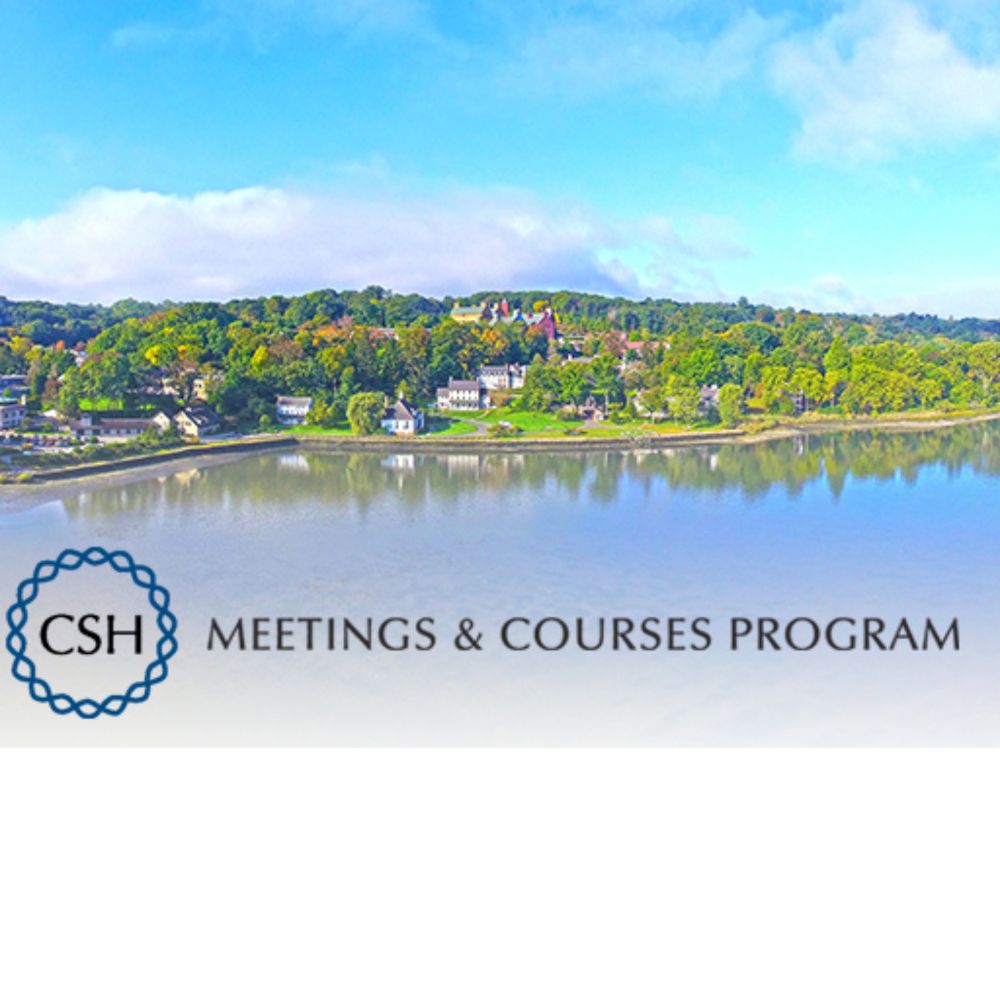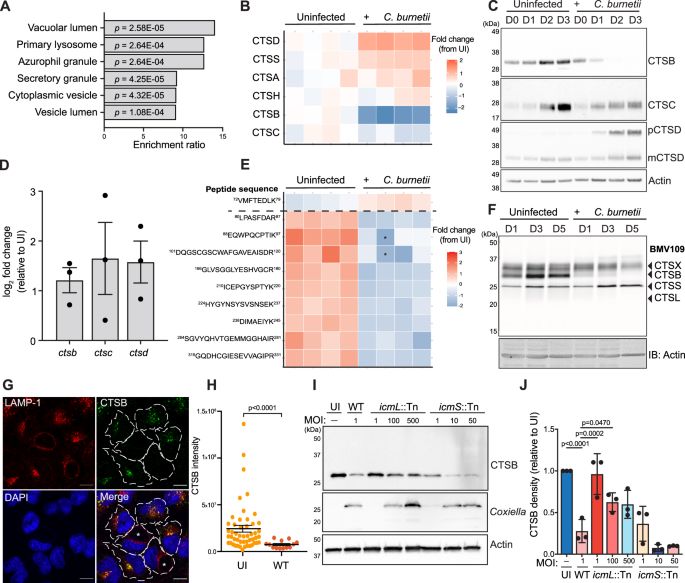Brandon Sit
@sitbrandon.bsky.social
postdoc at MIT Bio | interested in obligate intracellular bacterial pathogen-host interactions | can -> usa transplant
First 🟦 post - my main postdoc work is out in the world! We designed a Cas12a-based genetic screen to identify host factors that contribute to infection by the tickborne pathogen Rickettsia parkeri, and stumbled across a really exciting direct interaction between host and bacterium🦠. Check it out!
Host cyclophilin-mediated maturation of an obligate intracellular bacterial surface virulence factor https://www.biorxiv.org/content/10.1101/2025.10.28.684717v1
November 3, 2025 at 7:03 PM
First 🟦 post - my main postdoc work is out in the world! We designed a Cas12a-based genetic screen to identify host factors that contribute to infection by the tickborne pathogen Rickettsia parkeri, and stumbled across a really exciting direct interaction between host and bacterium🦠. Check it out!
Reposted by Brandon Sit
Thrilled to contribute to this exciting work on protein binder design together w/ @hannes-stark.bsky.social
, Felix Faltings, Regina Barzilay, Tommi Jaakkola, and co. We applied BoltzGen to design novel antimicrobial peptides targeting DNA gyrase based on inhibitory protein fragments. (1/n)
, Felix Faltings, Regina Barzilay, Tommi Jaakkola, and co. We applied BoltzGen to design novel antimicrobial peptides targeting DNA gyrase based on inhibitory protein fragments. (1/n)
Excited to release BoltzGen which brings SOTA folding performance to binder design! The best part of this project is collaborating with a broad network of leading wetlabs that test BoltzGen at an unprecedented scale, showing success on many novel targets and pushing the model to its limits!

October 27, 2025 at 12:39 PM
Thrilled to contribute to this exciting work on protein binder design together w/ @hannes-stark.bsky.social
, Felix Faltings, Regina Barzilay, Tommi Jaakkola, and co. We applied BoltzGen to design novel antimicrobial peptides targeting DNA gyrase based on inhibitory protein fragments. (1/n)
, Felix Faltings, Regina Barzilay, Tommi Jaakkola, and co. We applied BoltzGen to design novel antimicrobial peptides targeting DNA gyrase based on inhibitory protein fragments. (1/n)
Reposted by Brandon Sit
Thrilled to share my work from the @jkagan1.bsky.social lab!
TLDR: O-acetylation and wall teichoic acid compete for space on S. aureus peptidoglycan. This competition regulates DNA release, and thus immune receptor activation, during infection!
www.biorxiv.org/content/10.1...
#microsky #immunosky
TLDR: O-acetylation and wall teichoic acid compete for space on S. aureus peptidoglycan. This competition regulates DNA release, and thus immune receptor activation, during infection!
www.biorxiv.org/content/10.1...
#microsky #immunosky

Wall teichoic acid is required for DNA-triggered innate immune receptor activation by Staphylococcus aureus
Receptors that stimulate inflammation are commonly activated by ligands that are buried within microbial cells. The mechanisms that facilitate immunostimulatory ligand release from microbes during inf...
www.biorxiv.org
September 26, 2025 at 11:31 AM
Thrilled to share my work from the @jkagan1.bsky.social lab!
TLDR: O-acetylation and wall teichoic acid compete for space on S. aureus peptidoglycan. This competition regulates DNA release, and thus immune receptor activation, during infection!
www.biorxiv.org/content/10.1...
#microsky #immunosky
TLDR: O-acetylation and wall teichoic acid compete for space on S. aureus peptidoglycan. This competition regulates DNA release, and thus immune receptor activation, during infection!
www.biorxiv.org/content/10.1...
#microsky #immunosky
Reposted by Brandon Sit
1/ Excited to share the first preprint from my lab! 🎉
My postdoc Paz asked how cholera toxin (CT) helps Vibrio cholerae thrive in the gut.
Turns out, CT rewires epithelial metabolism toward L-lactate production—fueling pathogen growth in the small intestine during disease
My postdoc Paz asked how cholera toxin (CT) helps Vibrio cholerae thrive in the gut.
Turns out, CT rewires epithelial metabolism toward L-lactate production—fueling pathogen growth in the small intestine during disease

Cholera toxin-induced disease generates epithelial cell-derived L-lactate that promotes Vibrio cholerae growth in the small intestine
Cholera toxin (CT) promotes Vibrio cholerae colonization by altering gut metabolism to favor pathogen growth. We have previously found that CT-induced disease leads to increased concentrations of L-la...
www.biorxiv.org
August 18, 2025 at 9:13 PM
1/ Excited to share the first preprint from my lab! 🎉
My postdoc Paz asked how cholera toxin (CT) helps Vibrio cholerae thrive in the gut.
Turns out, CT rewires epithelial metabolism toward L-lactate production—fueling pathogen growth in the small intestine during disease
My postdoc Paz asked how cholera toxin (CT) helps Vibrio cholerae thrive in the gut.
Turns out, CT rewires epithelial metabolism toward L-lactate production—fueling pathogen growth in the small intestine during disease
Reposted by Brandon Sit
Are you an MIT postdoc in the life sciences? Come join my new initiative, the KendallSqBio Postdoc Symposium on Sept. 10, 2025!
✅ Present your science
✅ Connect with other postdocs
✅ Build your community
Abstract deadline July 11th! forms.gle/iXMTYfqgLKWR...
✅ Present your science
✅ Connect with other postdocs
✅ Build your community
Abstract deadline July 11th! forms.gle/iXMTYfqgLKWR...

July 1, 2025 at 2:01 PM
Are you an MIT postdoc in the life sciences? Come join my new initiative, the KendallSqBio Postdoc Symposium on Sept. 10, 2025!
✅ Present your science
✅ Connect with other postdocs
✅ Build your community
Abstract deadline July 11th! forms.gle/iXMTYfqgLKWR...
✅ Present your science
✅ Connect with other postdocs
✅ Build your community
Abstract deadline July 11th! forms.gle/iXMTYfqgLKWR...
Reposted by Brandon Sit
Alert! The abstract deadline for the Microbial Pathogenesis & Host Response meeting has been extended to July 7 meetings.cshl.edu/meetings.asp...

Microbial Pathogenesis & Host Response
Cold Spring Harbor Laboratory Meetings & Courses -- a private, non-profit institution with research programs in cancer, neuroscience, plant biology, genomics, bioinformatics.
meetings.cshl.edu
June 23, 2025 at 8:24 PM
Alert! The abstract deadline for the Microbial Pathogenesis & Host Response meeting has been extended to July 7 meetings.cshl.edu/meetings.asp...
Reposted by Brandon Sit
Excited to share this story from my PhD, out today in Nature Communications! We show that Coxiella removes cathepsin B to reduce lysosomal hostility and promote bacterial success. This depends on a vacuole established by effector CvpB.
www.nature.com/articles/s41...
www.nature.com/articles/s41...

Coxiella burnetii manipulates the lysosomal protease cathepsin B to facilitate intracellular success - Nature Communications
The zoonotic pathogen Coxiella burnetiiestablishes a unique intracellular niche within a lysosome-derived vacuole. Here Bird et al. undertook proteomic, cell biology and microbiology approaches to cha...
www.nature.com
April 25, 2025 at 12:14 AM
Excited to share this story from my PhD, out today in Nature Communications! We show that Coxiella removes cathepsin B to reduce lysosomal hostility and promote bacterial success. This depends on a vacuole established by effector CvpB.
www.nature.com/articles/s41...
www.nature.com/articles/s41...
Reposted by Brandon Sit
Excited to see many in the bacterial pathogenesis community joining here in the last few weeks, so here's a Starter Pack to help make connections. Reply/DM to be added to this or future Packs. #Microsky go.bsky.app/VH64BaY
November 17, 2024 at 1:46 AM
Excited to see many in the bacterial pathogenesis community joining here in the last few weeks, so here's a Starter Pack to help make connections. Reply/DM to be added to this or future Packs. #Microsky go.bsky.app/VH64BaY
Reposted by Brandon Sit
November 10, 2024 at 9:46 PM

